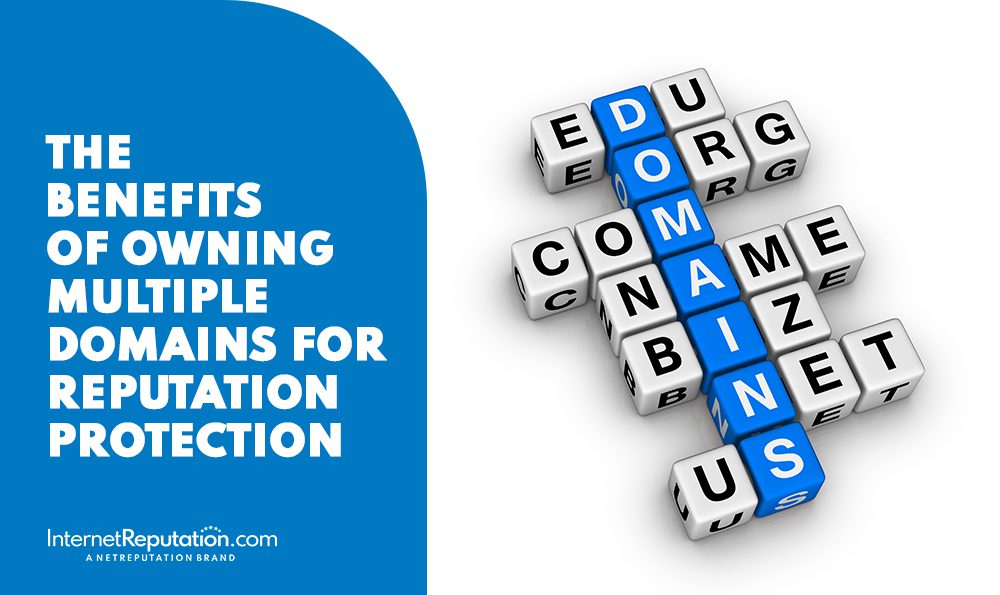The Art of Reputation Management

Reputation management is crucial to any individual or organization’s online presence. In today’s digital age, where information spreads rapidly and opinions are easily shared, maintaining a positive reputation is more important than ever. Reputation management involves actively monitoring and influencing how others perceive and interact with you or your brand. Building trust and credibility and influencing consumer perception are key reasons why good reputation management is vital.
Understanding your online business reputation involves monitoring online mentions, analyzing reviews and ratings, and tracking how your brand is perceived online. This information provides valuable insights into your reputation and enables you to make necessary adjustments to maintain a positive image.
To effectively manage your reputation, various strategies can be employed. Cultivating a positive online presence through consistent branding, engaging with your audience, and showcasing your expertise are important steps in a reputation management strategy. Addressing negative feedback promptly and professionally is crucial to mitigate potential damage to your business’s online reputation.
Several tools and resources are available to aid in your online reputation management service. Online reputation management platforms provide features for monitoring, analyzing, and responding to online brand mentions. Social media listening tools help you stay informed about conversations and sentiments surrounding your brand on social media platforms.
Examining case studies of successful reputation management companies and campaigns can provide valuable insights and inspiration for your brand, reputation management services, and strategies. Learning from real-life examples of companies or individuals who have effectively managed their reputations can guide you in implementing effective reputation management practices.
Why Is Reputation Management Important?
Building Trust and Credibility
Building trust and credibility is paramount in the reputation management process. Trust is established when a company consistently delivers on its promises and acts honestly and honestly. Credibility is gained through a track record of reliable, high-quality products or services.
Companies must prioritize transparency and open customer communication to build trust and credibility. They should provide accurate and detailed information about their products or services, ensuring customers clearly understand what they can expect. Sharing customer testimonials and positive reviews can also help showcase the company brand reputation manager’s credibility.
Maintaining consistent branding and messaging is another crucial aspect of building trust and credibility. This includes delivering a consistent experience across all touchpoints, from the company website to social media platforms. By presenting a unified and professional image, companies can instill confidence in their target audience.
Effective customer service also plays a vital role in building trust and credibility. Responding promptly and courteously to customer inquiries or concerns demonstrates that the company values its customers and is committed to resolving any issues that may arise.
By establishing trust and credibility, companies can create a positive reputation that attracts and retains customers. This, in turn, leads to increased customer loyalty and provides a strong foundation for long-term business success.
Influencing Consumer Perception
Influencing consumer perception is a vital component of managing your brand’s reputation. You can establish trust, credibility, and loyalty by molding how consumers perceive your brand. Here are some effective tactics to shape consumer perception:
1. Maintain consistent branding: Ensure your brand message and values are communicated across all platforms and touchpoints. This approach helps consumers form a clear and favorable perception of your brand.
2. Engage with customers: Actively participate in conversations with customers through your social media accounts, online forums, and online review sites. Respond promptly to reviews and address any concerns or issues raised. This demonstrates that you value customer feedback and are dedicated to resolving problems.
3. Showcase positive experiences: Highlight customer experiences through testimonials, case studies, positive content, and success stories. This strategy helps shape consumer perception by showcasing the value and satisfaction others have gained from your products or services.
4. Monitor and manage negative reviews: Keep track of online reviews and ratings to identify negative sentiments. Responding promptly and professionally to negative reviews shows that you proactively address customer concerns.
5. Collaborate with influencers: Partner with influencers or industry experts to promote your brand through social media marketing alone. Their endorsement can positively influence consumer perception and enhance brand credibility.
By implementing these strategies, you can effectively influence consumer perception and cultivate a positive reputation for your brand. Remember, a well-informed and positive consumer perception can increase customer trust and loyalty.
Understanding Your Online Reputation
Discover the power of managing your online reputation!
Monitoring Online Mentions
Regarding brand reputation management and online reputation management services, monitoring online mentions is a crucial aspect that should not be overlooked. By staying on top of what is being said about your brand or company online, you can effectively manage and address potential issues or negative feedback.
- Real-time monitoring: Keep track of any mentions of your brand or company across various online platforms, including social media, review websites, and online forums. This allows you to stay informed about what is being said and respond promptly if necessary.
- Sentiment analysis: Analyze the sentiment of online mentions to determine whether they are positive, negative, or neutral. This information can help you gauge the overall perception of your brand and identify areas for improvement or potential risks.
- Identify trends: By monitoring online mentions, you can identify patterns or trends in consumer feedback or opinions. This can provide valuable insights into customer preferences, concerns, or areas where your brand excels.
- Actionable insights: Use the information gathered from monitoring online mentions to inform your reputation management strategies. Address any negative feedback or issues promptly and take steps to enhance and promote positive aspects of your brand.
- Competitor analysis: Monitoring online mentions also allows you to monitor what is said about your competitors. This can help you identify areas where you can differentiate yourself or capitalize on opportunities.
By actively monitoring negative online reviews and mentions, you can effectively manage your brand’s reputation, address any issues proactively, and maintain a positive online presence.
Analyzing Online Reviews and Rating
Online reviews and ratings are pivotal to online reputation management, offering a lens into consumer perception. Through their analysis, businesses discern strengths and areas needing improvement, with positive reviews bolstering credibility and negative ones spotlighting gaps. By assessing sentiments and quantifying feedback using numerical data, companies can identify trends to enhance their offerings. Prompt responses to negative feedback and active customer engagement emphasize a business’s dedication to customer satisfaction. At the same time, a meticulous evaluation of these reviews aids in fostering a robust, positive online reputation.
Strategies for Effective Reputation Management
Cultivating a Positive Online Presence
When it comes to cultivating a positive online presence and enhancing your reputation online, there are several strategies you can employ to build a strong online image.
- Create valuable and relevant content: Regularly publish high-quality content that provides value to your target audience, such as blog posts, articles, videos, or podcasts.
- Engage with your audience: Actively participate in online conversations and interact with your followers or customers. Respond to comments, answer questions, and address concerns promptly.
- Utilize social media platforms: Establish a presence on social media platforms that are relevant to your industry or target audience. Share informative and engaging content, engage with followers, and foster a community around your brand.
- Monitor online mentions: Keep track of what people say about your brand online. Stay informed about any mentions or discussions related to your business by utilizing online monitoring tools.
- Encourage and manage online reviews: Encourage satisfied customers to leave positive reviews on platforms like Google or industry-specific review sites. Prompt and professionally address negative reviews to demonstrate your commitment to customer feedback.
- Collaborate with influencers and industry experts: Partnering with influencers or industry experts can enhance your brand’s visibility and credibility. Look for opportunities to collaborate on content or host joint events.
By implementing these strategies, you can successfully make Google search your business profile and cultivate a positive online presence that enhances your reputation and establishes your brand as a trustworthy and valuable resource in your industry.
Responding to Negative Feedback
A proactive and constructive approach is important when responding to a negative review or feedback. Instead of ignoring or becoming defensive, addressing the concerns and offering a solution is crucial. Here are some key strategies to consider:
- Acknowledge the feedback: Show that you have heard and understood the customer’s concerns. This helps to validate their experience and shows that you value their opinion.
- Apologize and take responsibility: Take ownership of any mistakes or shortcomings. Apologize sincerely and express a genuine desire to resolve the issue.
- Offer a solution: Provide a practical solution or course of action to address the problem. This could involve offering a refund, replacement, or additional support to rectify the situation.
- Maintain professionalism: Despite the negative feedback, remain professional and polite in your response. Avoid getting defensive or engaging in heated exchanges.
- Learn from the feedback: Use negative feedback as an opportunity for growth and improvement. Identify any recurring issues and take steps to address them to enhance the overall customer experience.
By responding to negative feedback constructively, you can resolve the customer’s concerns and demonstrate to others that you are committed to providing excellent customer service. Remember, addressing negative feedback effectively can turn a dissatisfied customer into a loyal advocate for your brand.
Tools and Resources for Reputation Management
Online Reputation Management Platforms
Regarding Online Reputation Management, utilizing the right platforms can greatly help monitor and improve your online reputation manager and presence. Here are some key online and other reputation monitoring and management services and platforms to consider:
- Google Alerts: This free tool allows you to monitor mentions of your brand or business across the web. You can set up alerts for specific keywords and receive email notifications whenever new mentions are found.
- Social Mention: This tool tracks your brand’s real-time mentions across social media platforms. It provides insights into sentiment, reach, and keywords associated with your brand.
These Online Reputation Management Platforms can give you the tools and insights to effectively manage negative reviews and protect your brand’s online reputation. By staying proactive and utilizing these resources, you can maintain a positive online presence and build trust with your target audience.
Social Media Listening Tools
Regarding online reputation management software alone, Social Media Listening Tools are crucial in monitoring and analyzing online conversations. These tools help businesses track what people say about their brand on various social media sites and platforms.
- Social media monitoring: Social Media Listening Tools allow businesses to monitor mentions, comments, and conversations about their brand on various social media platforms such as Facebook, Twitter, Instagram, and LinkedIn. This provides valuable insights into customer sentiment and allows businesses to respond promptly to any issues or feedback.
- Competitor analysis: These tools also enable businesses to monitor their competitors’ social media activities and track their online reputation. By analyzing their competitors’ strategies and customer engagement, businesses can identify areas for improvement and adjust their approach accordingly.
- Sentiment analysis: Social Media Listening Tools use advanced algorithms to analyze the sentiment of online conversations about a brand. They categorize mentions as positive, negative, or neutral, providing businesses with a clear understanding of how the public perceives their brand.
- Trend identification: These tools help businesses identify emerging trends and topics of conversation related to their industry. By staying informed about the latest trends, businesses can proactively engage with customers, tailor their marketing strategies, and align their brand with the interests and preferences of their target audience.
Frequently Asked Questions
1. How can managing reviews help build a positive reputation for my business?
Managing reviews allows businesses to promptly monitor and respond to customer feedback, addressing issues or concerns. By prioritizing customer satisfaction and demonstrating a commitment to resolving problems, review management for businesses can build a positive brand image and foster trust with their audience.
2. What are the benefits of having an authentic and transparent reputation?
An authentic and transparent reputation helps businesses establish a trusting relationship with stakeholders. Businesses can regain consumer trust and cultivate a positive reputation by being honest, admitting mistakes, and taking responsibility for negative experiences. This can increase customer loyalty, a competitive advantage, and improve relationships with investors and partners.
3. How can building an online community contribute to reputation management?
Building an online community through social media platforms allows businesses to engage with customers, respond to feedback promptly, and show that they value customer satisfaction. By fostering a strong online community that can encourage positive reviews and defend the brand against negative comments, businesses can manage their reputation and maintain a positive brand image.
4. How can businesses mitigate the risks associated with managing reputation?
Managing reputation risk involves proactive measures such as regularly monitoring the brand’s online and social media presence, promptly addressing any new negative content, and developing strategies to minimize the impact of reputation hits or crises. By staying proactive and reactive in their brand’s online presence and reputation management strategy, businesses can protect their brand online and minimize potential damage to their reputation.
5. How does search engine optimization (SEO) affect reputation management?
Search engine optimization is a powerful tool for improving online visibility. By optimizing content with relevant keywords, businesses can appear in the search engines’ results when potential customers are looking for similar products or services. This can help shape a positive internet reputation and increase brand exposure in search engine results, ultimately contributing to reputation management efforts.
6. How can a positive reputation help with hiring difficulties?
A positive reputation can make a business more attractive to potential employees. Job seekers often research a company’s reputation before applying or accepting a job offer. A positive reputation signals a quality work environment and an influential business reputation can help businesses attract and retain talented employees, thus mitigating hiring difficulties.



